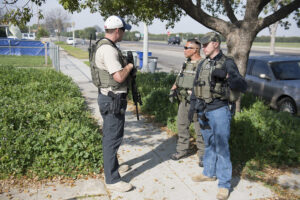Witnesses and Defendants (in both civil and criminal cases) get the opportunity to ignore providing testimony in courtroom. This privilege will also apply to depositions, jury hearings, as well as other legal actions.
Defendants in criminal cases cannot be pushed to carry the witness to the judges, persecutors and also their lawyer. When the accused one chooses not to provide testimony, the jury is not able to consider the refusal while identifying innocence or guilt.
Defendants in most civil case may have the privilege to ignore providing testimony in courtroom when it can bring them get charged with a criminal offense. Nevertheless, unlike in most criminal trials, the jury usually takes the refusal to testimony into consideration when getting to a verdict. Also, when a defendant or witness in a most civil trial decides to invoke their Fifth Amendment rights before trial, they will be unallowed from showing specific evidence.
In addition, a defendant that accepts providing testimony in courtroom has properly waived the Fifth Amendment right. In other words he or she who might have taken the stand cannot avoid answering certain questions, even though the testimony might be self incriminating.
If you are getting involved in a criminal case, either getting involved as a witness or a defendant, The top rated criminal defense lawyers can be hired to find out how the Fifth Amendment can certainly protect you.
Who are allowed to Decline to Testify?
The accused ones in most criminal cases benefit from the right’s protection against any self incriminations. However witnesses may ignore to testify in certain cases. When testimony may potentially bring them to deal with criminal charges, they can refuse.
In contrast to the defendant in the case, witnesses are typically pushed to testify, commonly through using a subpoena. Witnesses usually do not waive their rights if they take the stand. They will often choose never to answer specific questions while giving answers to others.
For instance, the cases that involve a witness who noticed a murder happen when attacking the victim’s home. When the witness try to answer questions regarding the location they were at the moment or even the things they were doing during the murder , the typical reactions may well lead to criminal charges . In cases like this, the witness can decline to answer those relevant questions. But, the witness can choose to answer several other questions with regards to the murder.
Even though you are innocence, you may invoke the right if you find a cause that fears you to get prosecuted. When discussing with your best defense lawyer, you will get the right solution and the lawyer can advise if you should invoke the Fifth Amendment.
Fingerprints and blood tests
Although defendants have the option not to testify in courtroom or even respond to incriminating questions, they are not allowed to reject the collections of DNA samples or fingerprints. Not any of them is regarded as testimonial; therefore the Fifth Amendment right against self-incrimination is the only way to communicative evidence.
The option to invoke one’s Fifth Amendment right against self-incrimination in criminal or civil cases can be quite confusing, which involve an investigation of both the factual information along with the related law in your jurisdiction. The only solution is to have preparation and discussion with the St. Paul MN criminal defense lawyer who can make a good decision. Don’t let yourself in a situation in which testimony will end up harming you without professional guidance. For more information about hiring the right criminal defense lawyers for your case you can check this post.





Be First to Comment